Home>Garden Essentials>Garden Plants>How To Use Thyme For Acne
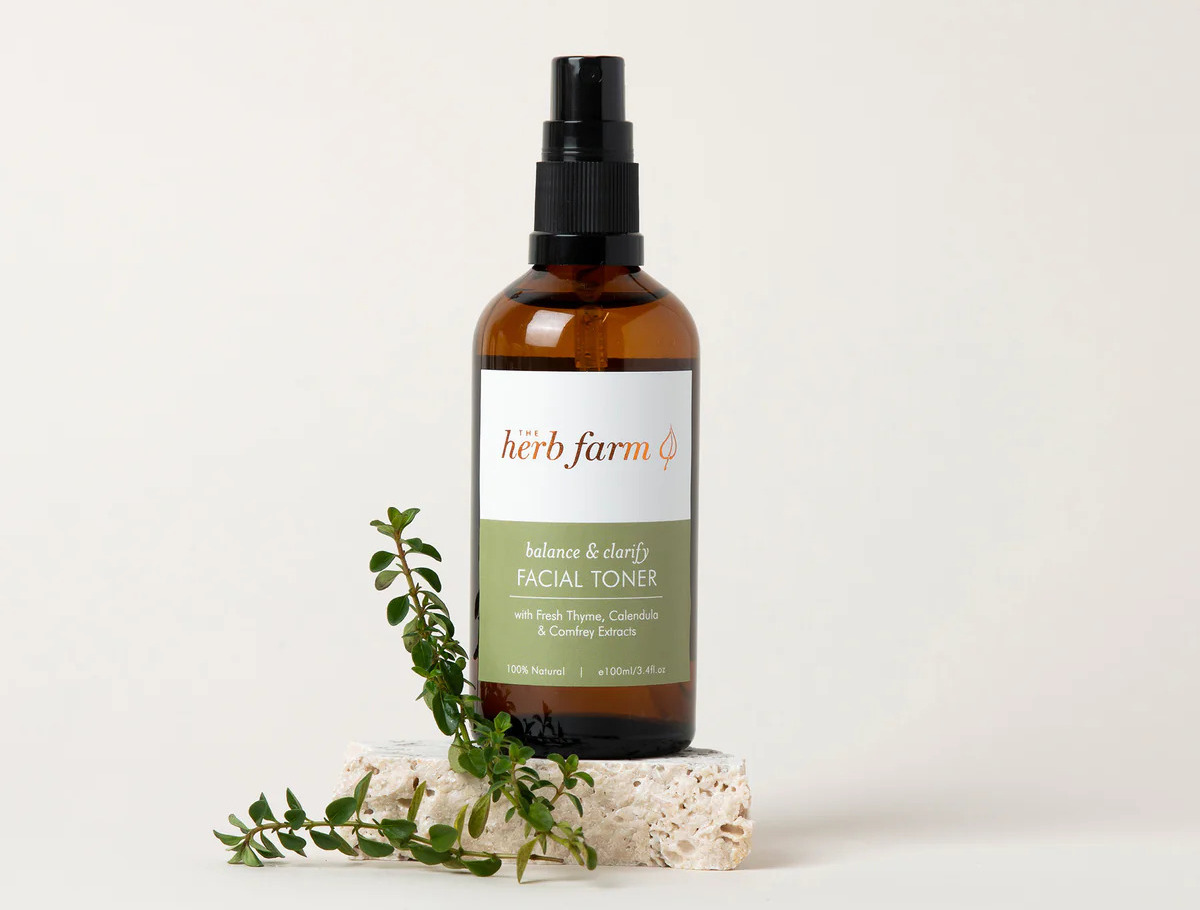

Garden Plants
How To Use Thyme For Acne
Modified: February 28, 2024
Discover the power of plants for acne treatment. Learn how to effectively use thyme, a natural remedy, to combat acne and achieve clear, healthy skin.
(Many of the links in this article redirect to a specific reviewed product. Your purchase of these products through affiliate links helps to generate commission for Storables.com, at no extra cost. Learn more)
Introduction
Acne is a common skin condition that affects millions of people worldwide. It can be frustrating and even embarrassing, causing a negative impact on self-esteem and confidence. While there are various skincare products and treatments available, some individuals prefer natural remedies to treat their acne.
One such natural remedy that has gained popularity for its potential benefits in managing acne is thyme. Thyme, a fragrant herb commonly used in cooking, also possesses antimicrobial, anti-inflammatory, and antioxidant properties that make it a promising option for addressing acne-related issues.
In this article, we will explore the benefits of using thyme for acne and different ways to incorporate it into your skincare routine. But before we dive into the details, it is important to understand the basics of acne and how it affects the skin.
Key Takeaways:
- Thyme offers a natural, multifaceted approach to managing acne, with its antimicrobial, anti-inflammatory, and antioxidant properties. From essential oil to facial toner, thyme provides effective and refreshing skincare solutions.
- Incorporating thyme into your skincare routine can combat acne and promote clearer, healthier skin. Whether using thyme essential oil or creating a thyme facial mask, embracing the natural benefits of thyme offers a holistic approach to skincare.
Read more: What Is Thyme Used For
Understanding Acne
Acne is a skin condition that occurs when hair follicles become clogged with oil, dead skin cells, and bacteria. It commonly appears on the face, neck, chest, back, and shoulders. The sebaceous glands in our skin produce an oily substance called sebum, which helps moisturize and protect the skin. However, when there is an excess production of sebum, along with dead skin cells and bacteria buildup, it can lead to the formation of acne.
Several factors contribute to the development of acne, including hormonal changes, stress, diet, and genetics. Hormonal fluctuations, especially during puberty, pregnancy, or menstrual cycles, can increase sebum production and result in acne breakouts. Additionally, stress can exacerbate acne by triggering an inflammatory response in the body.
There are different types of acne, including whiteheads, blackheads, pimples, papules, pustules, nodules, and cysts. Each type has its own characteristics, and the severity of acne can vary from mild to severe.
Acne can have a significant impact on an individual’s self-esteem and confidence. It is essential to address the condition using effective remedies to promote clear and healthy skin.
Benefits of Thyme for Acne
Thyme has been used for centuries for its medicinal benefits, and its potential for treating acne is no exception. Here are some key reasons why thyme is beneficial for managing acne:
- Antimicrobial properties: Thyme contains compounds like thymol and carvacrol, which have strong antimicrobial properties. These compounds can help kill the bacteria that contribute to acne breakouts, such as Propionibacterium acnes. By reducing bacterial growth on the skin, thyme helps prevent clogged pores and reduces the likelihood of developing new acne lesions.
- Anti-inflammatory effects: Acne is often accompanied by inflammation, leading to redness, swelling, and discomfort. Thyme possesses anti-inflammatory properties that can help calm the skin, reduce inflammation, and alleviate the symptoms associated with acne.
- Antioxidant activity: Thyme is rich in antioxidants like vitamin C, vitamin E, and flavonoids, which help protect the skin from oxidative stress caused by free radicals. Oxidative stress can contribute to acne formation and aggravation. By neutralizing free radicals, thyme aids in maintaining a healthy complexion and reducing the occurrence of acne.
- Exfoliating properties: Thyme contains natural exfoliating agents that can gently slough off dead skin cells, unclog pores, and prevent the formation of blackheads and whiteheads. Regular exfoliation promotes a clearer complexion and reduces the likelihood of acne breakouts.
- Oil-regulating properties: Excess sebum production is a contributing factor to acne. Thyme helps regulate sebum production, preventing the skin from becoming excessively oily. By maintaining a balanced level of sebum, thyme helps keep the pores clear and reduces the occurrence of acne.
These beneficial properties make thyme a promising natural remedy for managing acne and improving the overall health of the skin. Incorporating thyme into your skincare routine can help combat acne and promote a clearer, more radiant complexion.
Different Ways to Use Thyme for Acne
Now that we understand the benefits of thyme for acne, let’s explore the various ways you can incorporate it into your skincare routine:
- Thyme Essential Oil: Thyme essential oil is a concentrated form of thyme extract. You can dilute a few drops of thyme essential oil in a carrier oil, such as jojoba oil or coconut oil, and apply it directly to the affected areas of your skin. Ensure proper dilution to avoid skin irritation. This method harnesses the antimicrobial and anti-inflammatory properties of thyme to combat acne-causing bacteria and reduce inflammation.
- Thyme Tea: Brewing thyme tea is another effective way to use thyme for acne. Simply steep a handful of fresh or dried thyme leaves in hot water for about 10 minutes. Let it cool down before using a cotton pad to apply the tea directly to your skin as a toner. Thyme tea can help cleanse the skin, reduce inflammation, and promote a clearer complexion.
- Thyme Facial Mask: Create a homemade facial mask by combining crushed fresh thyme leaves with other acne-fighting ingredients like honey, yogurt, or bentonite clay. Apply the mixture to your face and leave it on for 15-20 minutes before rinsing off with warm water. This mask helps cleanse the pores, reduce excess oil, and soothe the skin.
- Thyme Infused Facial Toner: Make a thyme-infused facial toner by steeping thyme leaves in witch hazel or apple cider vinegar for a few weeks. Strain the mixture and transfer it to a spray bottle. Use this toner after cleansing your face to remove residual impurities, balance the skin’s pH, and prevent acne breakouts.
Remember to patch test any thyme preparations on a small area of your skin before applying them to your face to ensure you don’t have any allergic reactions or sensitivities.
Incorporating thyme into your skincare routine can be a natural and effective way to combat acne. Experiment with these different methods and find the one that works best for your skin type and preferences. Be consistent with your usage and give it time to see noticeable results.
Thyme Essential Oil
Thyme essential oil is derived from the leaves of the thyme plant through a process called steam distillation. It is a highly concentrated form of thyme extract and is known for its potent antimicrobial and anti-inflammatory properties. Utilizing thyme essential oil can be an effective way to treat acne and promote clearer skin.
When using thyme essential oil for acne, it is important to dilute it properly to avoid skin irritation. Here’s how you can safely incorporate thyme essential oil into your skincare routine:
- Choose a carrier oil: Select a carrier oil that suits your skin type. Popular options include jojoba oil, coconut oil, almond oil, or grapeseed oil. Carrier oils help dilute the essential oil and provide additional nourishment for your skin.
- Dilute the thyme essential oil: In a small bowl, mix a few drops of thyme essential oil with one tablespoon of your chosen carrier oil. Start with a low concentration of essential oil to assess your skin’s sensitivity. You can gradually increase the ratio if your skin tolerates it well.
- Perform a patch test: Before applying the diluted mixture to your face, conduct a patch test on a small area of your skin, such as your forearm. Leave it on for 24 hours to check for any adverse reactions or irritation. If there is no negative response, proceed with applying the thyme oil mixture to your acne-prone areas.
- Application: Gently massage the thyme essential oil mixture onto the affected areas of your skin. Be sure to avoid contact with your eyes and any open wounds or broken skin. Allow the oil to absorb into your skin for a few minutes before applying any other skincare products.
- Frequency of use: Begin by using thyme essential oil once a day. If your skin tolerates it well, you can gradually increase the frequency to twice a day. However, if you experience any redness, irritation, or discomfort, discontinue use immediately.
Thyme essential oil works by killing acne-causing bacteria, reducing inflammation, and helping to regulate excess oil production. It can also promote a healthy complexion and prevent future acne breakouts.
It’s important to note that essential oils are highly concentrated and could have adverse effects if used incorrectly. Always follow proper dilution guidelines and consult with a healthcare professional or dermatologist if you have any concerns or pre-existing skin conditions.
Mix a few drops of thyme essential oil with a carrier oil and apply it to the affected areas. Thyme has antibacterial properties that can help reduce acne-causing bacteria and inflammation. Always do a patch test first to check for any skin sensitivity.
Read more: How To Use Thyme For Mucus
Thyme Tea
Thyme tea is a soothing and fragrant herbal infusion that can be used topically to help cleanse and heal acne-prone skin. The natural compounds present in thyme, such as thymol and carvacrol, have antimicrobial and anti-inflammatory properties that can aid in treating acne and reducing inflammation.
Here’s how you can make and use thyme tea for acne:
- Gather fresh or dried thyme leaves: You can use either fresh thyme leaves or dried thyme for making the tea. If using fresh thyme, pick a handful of leaves from the plant. If using dried thyme, measure one to two teaspoons of the herb.
- Steep the thyme leaves: Boil a cup of water and pour it over the thyme leaves in a mug or teapot. Let the mixture steep for about 10 minutes to allow the water to extract the beneficial compounds from the thyme.
- Cool down the tea: After the steeping time is complete, strain the thyme leaves from the tea and set it aside to cool down. You can refrigerate the tea for a refreshing effect if desired.
- Application: Once the thyme tea has cooled, dip a cotton pad into the tea and gently apply it to the affected areas of your skin. You can also decant the tea into a spray bottle and spritz it onto your face for a more convenient application.
- Leave it on or rinse: Allow the thyme tea to remain on your skin for a few minutes, allowing the natural compounds to work their magic. Then, you can choose to either leave it on or rinse it off with cool water. Leaving it on overnight can be beneficial for maximum absorption.
Thyme tea helps cleanse the skin, soothe irritation, and reduce the appearance of acne. Its antimicrobial properties aid in killing acne-causing bacteria, and its anti-inflammatory effects can help calm redness and swelling associated with acne breakouts.
It’s important to note that thyme tea may not be suitable for everyone. If you have sensitive skin or are prone to allergies, perform a patch test on a small area of your skin before applying it to your face. If you experience any adverse reactions, discontinue use immediately.
Thyme tea can be a refreshing addition to your skincare routine, offering natural antimicrobial and anti-inflammatory properties to help combat acne. Consistent use of thyme tea, coupled with a good skincare regimen, can promote clearer and healthier skin over time.
Thyme Facial Mask
A thyme facial mask can be a beneficial addition to your skincare routine, as it combines the acne-fighting properties of thyme with other natural ingredients that help cleanse and rejuvenate the skin. This homemade mask targets acne, unclogs pores, and promotes a clearer complexion. Here’s how you can make and use a thyme facial mask:
- Ingredients:
- 1 tablespoon of crushed fresh thyme leaves or 1 teaspoon of dried thyme
- 1 tablespoon of raw honey
- 1 tablespoon of plain yogurt or aloe vera gel
- Mixing the ingredients:
- In a small bowl, combine the crushed thyme leaves (or dried thyme) with honey and yogurt (or aloe vera gel).
- Thoroughly mix the ingredients until you have a smooth and consistent paste.
- Application:
- Ensure your face is clean and dry before applying the mask.
- Using clean fingertips or a cosmetic brush, apply the thyme facial mask evenly to your face, focusing on areas prone to acne or breakouts.
- Avoid applying the mask too close to the eyes or mouth.
- Leave it on:
- Allow the mask to sit on your skin for about 15-20 minutes, giving the ingredients time to work their magic.
- During this time, the mask will dry and tighten on your face.
- Take this opportunity to relax and enjoy the rejuvenating experience.
- Rinse off:
- After the recommended time, gently rinse off the mask with lukewarm water.
- Use your fingertips to massage the mask in circular motions, allowing the thyme to exfoliate and further unclog your pores.
- Pat your face dry with a clean towel.
A thyme facial mask utilizes the antibacterial, anti-inflammatory, and exfoliating properties of thyme to combat acne and promote clearer skin. Honey provides additional antibacterial properties while moisturizing and soothing the skin. Yogurt or aloe vera gel helps to calm any inflammation and balances the skin’s pH levels.
For optimal results, incorporate a thyme facial mask into your skincare routine on a weekly basis. Regular use can help reduce acne breakouts, minimize the appearance of pores, and leave your skin feeling refreshed and rejuvenated.
Remember, if you have any allergies to the ingredients or experience any irritation or discomfort after applying the mask, discontinue use immediately. It’s always best to patch test a small area of your skin beforehand to ensure compatibility.
Thyme Infused Facial Toner
A thyme-infused facial toner can be a refreshing and revitalizing addition to your skincare routine. It harnesses the antibacterial, anti-inflammatory, and astringent properties of thyme to help cleanse, tone, and balance the skin. Here’s how you can make and use a thyme-infused facial toner:
- Ingredients:
- A handful of fresh thyme sprigs or 1-2 tablespoons of dried thyme
- 1 cup of witch hazel or apple cider vinegar
- A glass jar with a tight-fitting lid
- Preparing the infusion:
- Place the fresh thyme sprigs or dried thyme in a clean glass jar.
- Pour the witch hazel or apple cider vinegar over the thyme until it is completely submerged.
- Seal the jar with the lid and store it in a cool, dark place for two to three weeks. Shake the jar gently every few days to agitate the mixture.
- After the infusion period, strain the liquid to remove the thyme leaves, transferring the toner into a clean, airtight container.
- Application:
- After cleansing your face, apply the thyme-infused facial toner using a cotton pad or a reusable cloth.
- Gently sweep the toner across your face, focusing on acne-prone areas or areas with enlarged pores.
- Allow the toner to air dry on your skin, or you can gently pat it into your skin using your fingertips.
- Frequency of use:
- Use the thyme-infused facial toner twice a day, after cleansing your face.
- For best results, incorporate it into your morning and evening skincare routine.
A thyme-infused facial toner helps remove excess oil, shrink the appearance of pores, and balance the skin’s pH levels. The antibacterial properties of thyme help combat acne-causing bacteria, reducing the likelihood of breakouts. Witch hazel or apple cider vinegar acts as an astringent, tightening the skin and promoting a smoother complexion.
Thyme-infused facial toner is suitable for most skin types, but it is always recommended to do a patch test before applying it to your face, especially if you have sensitive skin or known allergies to the ingredients.
By including a thyme-infused facial toner in your skincare routine, you can enjoy the multiple benefits of thyme while refreshing and rejuvenating your skin.
Precautions and Tips
While using thyme for acne can be effective and beneficial for many individuals, it is important to keep a few precautions and tips in mind to ensure safety and maximize results. Here are some important points to consider:
- Patch test: Before using any thyme-infused products or essential oils on your face, perform a patch test on a small area of your skin. This will help determine if you have any allergic reactions or sensitivities to thyme. If you experience any redness, itching, or irritation, discontinue use immediately.
- Dilution: If you are using thyme essential oil, always dilute it properly with a carrier oil. Thyme essential oil is highly concentrated, and using it undiluted can cause skin irritation. Follow the recommended dilution ratios to ensure safe and effective use.
- Sun sensitivity: Some individuals may experience increased sun sensitivity after using thyme-based products. It is advisable to apply sunscreen with a high SPF before going out in the sun to protect your skin from potential damage.
- Consistency and patience: Like any skincare treatment, consistency is key. It may take time to see noticeable results when using thyme for acne. Be patient and incorporate thyme-based products into your routine for several weeks before expecting significant improvements.
- Quality of thyme: Ensure that you are using high-quality, organic thyme for the best results. Using fresh thyme leaves or reputable brands of dried thyme can ensure the potency and effectiveness of the herb.
- Consult a professional: If you have severe or persistent acne, it is always recommended to consult with a dermatologist or skincare professional. They can provide personalized guidance and recommend the most appropriate treatment plan for your specific skin concerns.
- General skincare practices: Using thyme for acne should be complemented with a healthy skincare routine. Remember to cleanse your face gently, moisturize appropriately, and avoid harsh chemicals or excessive scrubbing, which can worsen acne and irritate the skin.
By following these precautions and tips, you can safely and effectively incorporate thyme into your acne treatment regimen.
Remember, everyone’s skin is unique, and what works for one person may not work for another. Pay attention to how your skin reacts to thyme-based products and adjust your usage accordingly. If any discomfort or adverse reactions persist, discontinue use and seek advice from a healthcare professional.
Read more: How To Use Fresh Thyme
Conclusion
Thyme, a versatile herb known for its culinary uses, also possesses a range of benefits for managing acne. Its antibacterial, anti-inflammatory, and antioxidant properties make it a valuable natural remedy for promoting clearer and healthier skin.
Throughout this article, we explored the benefits of using thyme for acne and learned about various ways to incorporate it into our skincare routines. From thyme essential oil to thyme tea, thyme facial masks, and thyme-infused facial toners, there are several options available to harness the power of this herb and combat acne.
When using thyme for acne, it is crucial to follow proper dilution guidelines, conduct patch tests, and be consistent in your skincare routine. Results may vary from person to person, and it may take time to see noticeable improvements. Remember to be patient and consult a dermatologist if you have severe or persistent acne concerns.
Incorporating thyme into your skincare regimen can not only help address acne but also provide a refreshing and rejuvenating experience for your skin. Whether you choose to use thyme essential oil, make thyme tea, apply a thyme facial mask, or use a thyme-infused facial toner, the natural properties of thyme can help cleanse, soothe, and nourish your skin.
As with any natural remedy, it is important to listen to your skin and adapt your routine accordingly. Everyone’s skin is unique, and what works for one person may not work for another. Pay attention to any reactions and adjust your usage as needed.
By incorporating thyme into your acne treatment, you are embracing the power of nature and taking a holistic approach to skincare. With its multitude of benefits, thyme offers a natural and effective option for managing acne and promoting a clearer, healthier complexion.
So why not give thyme a try? Explore the different ways to use thyme for acne and find the methods that work best for your skin. Embrace the healing properties of this remarkable herb and discover the wonders it can do for your skin.
Frequently Asked Questions about How To Use Thyme For Acne
Was this page helpful?
At Storables.com, we guarantee accurate and reliable information. Our content, validated by Expert Board Contributors, is crafted following stringent Editorial Policies. We're committed to providing you with well-researched, expert-backed insights for all your informational needs.
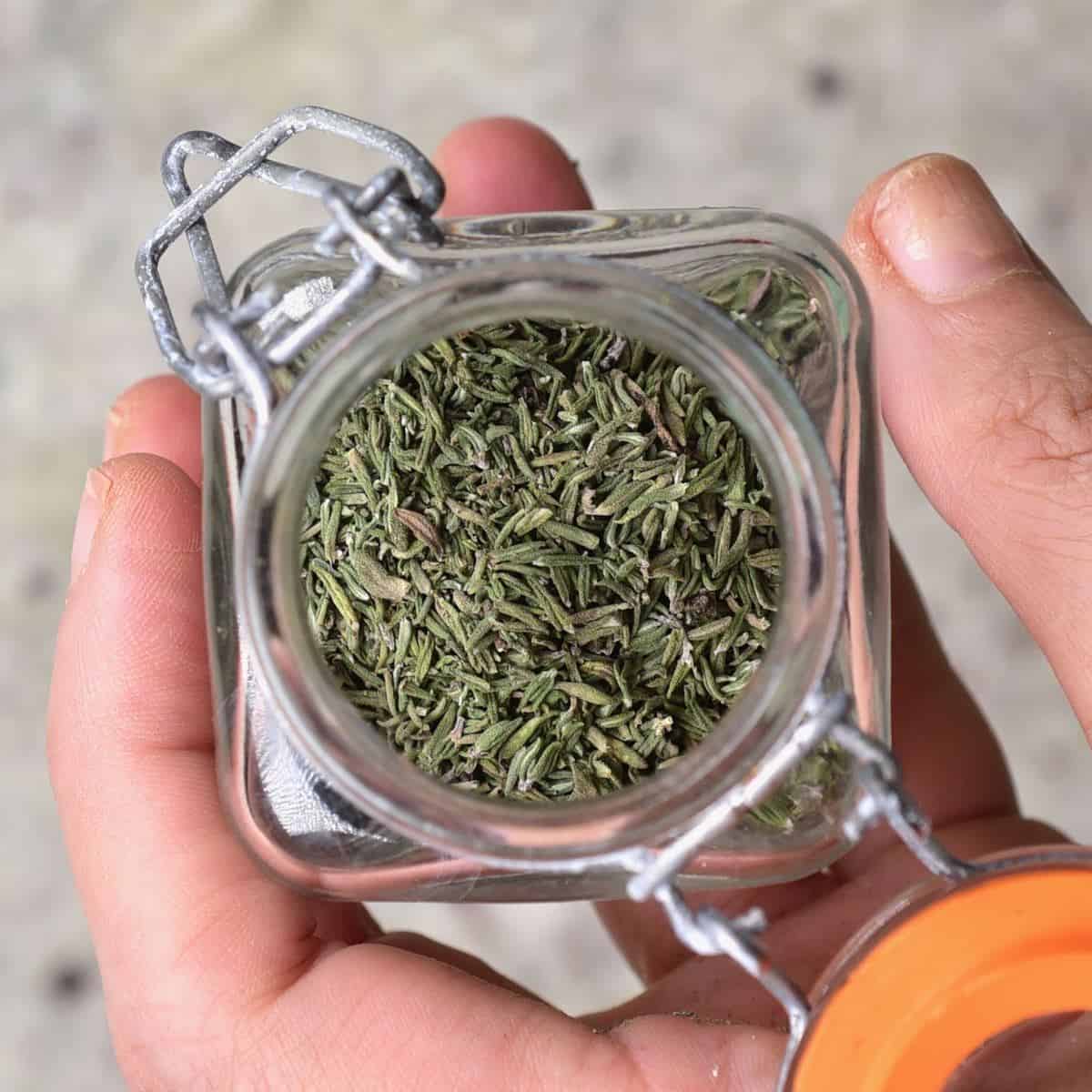

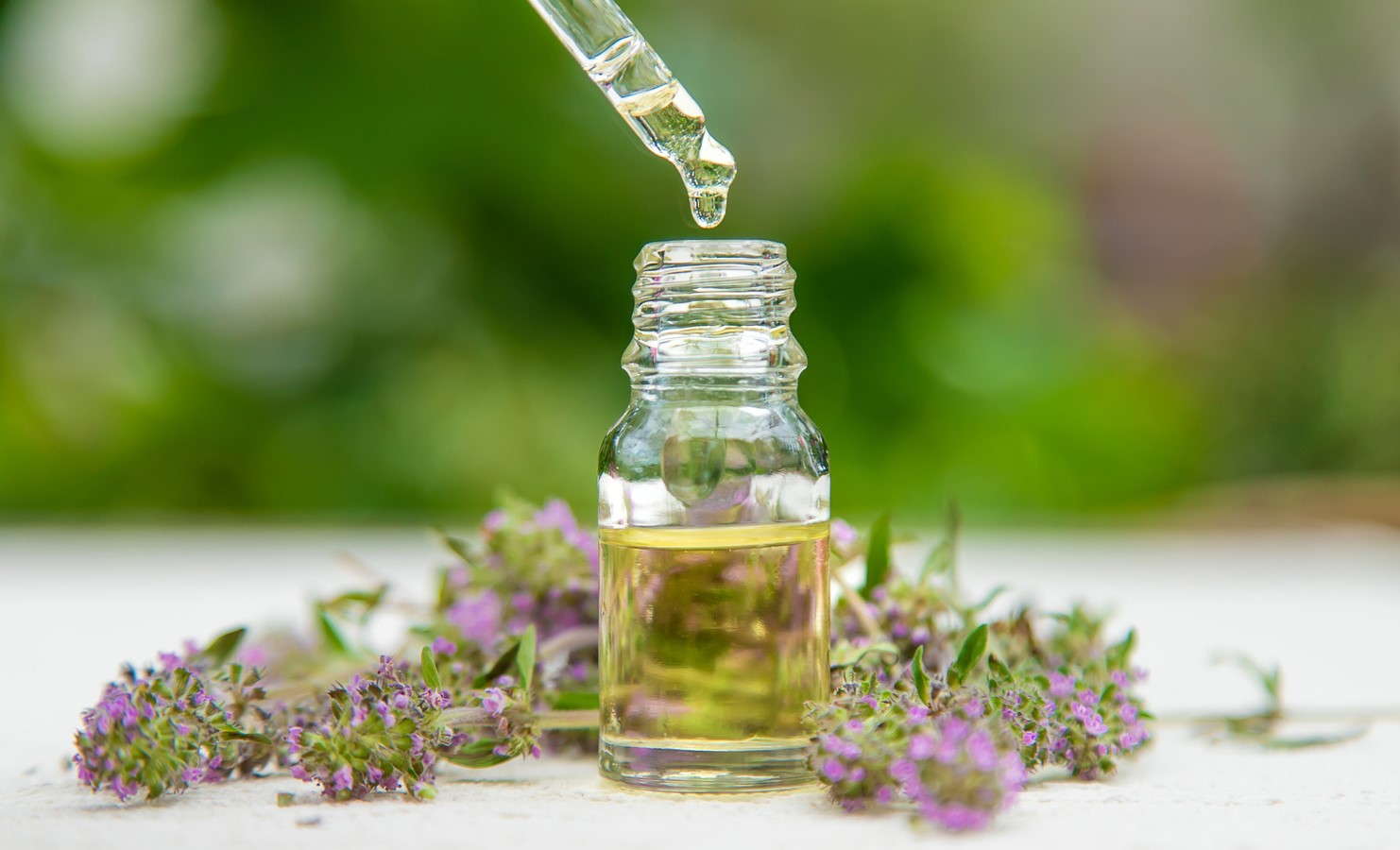
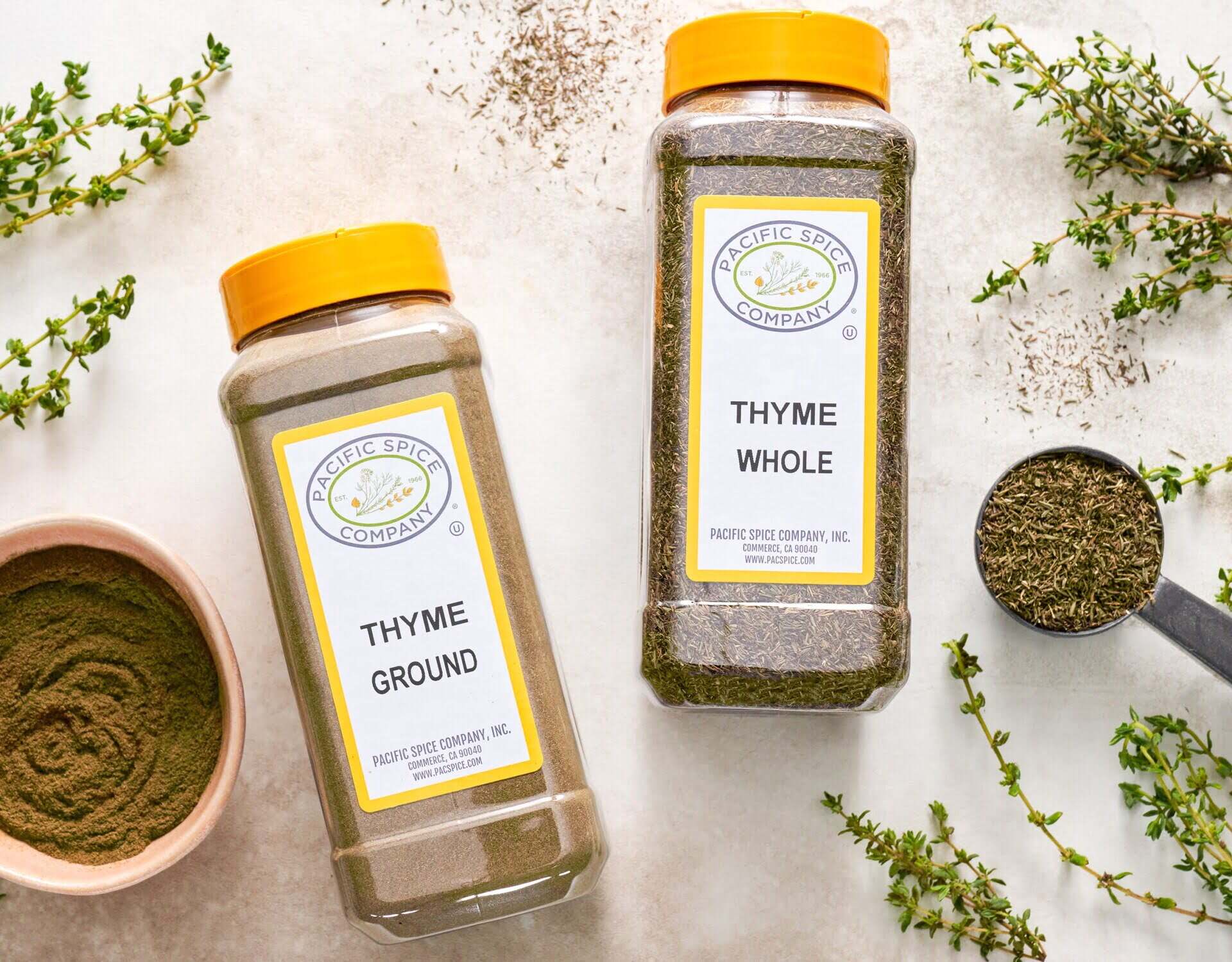
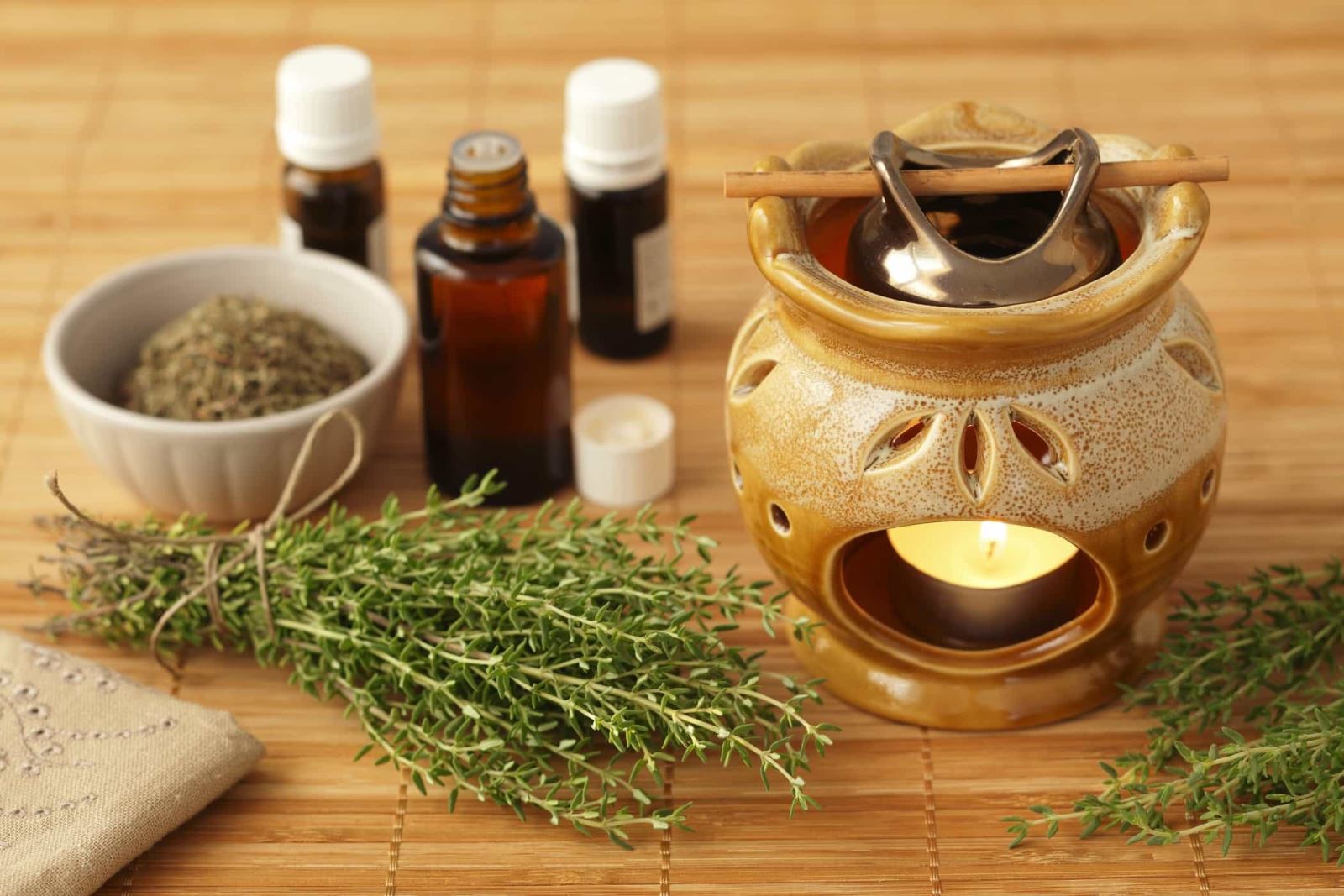

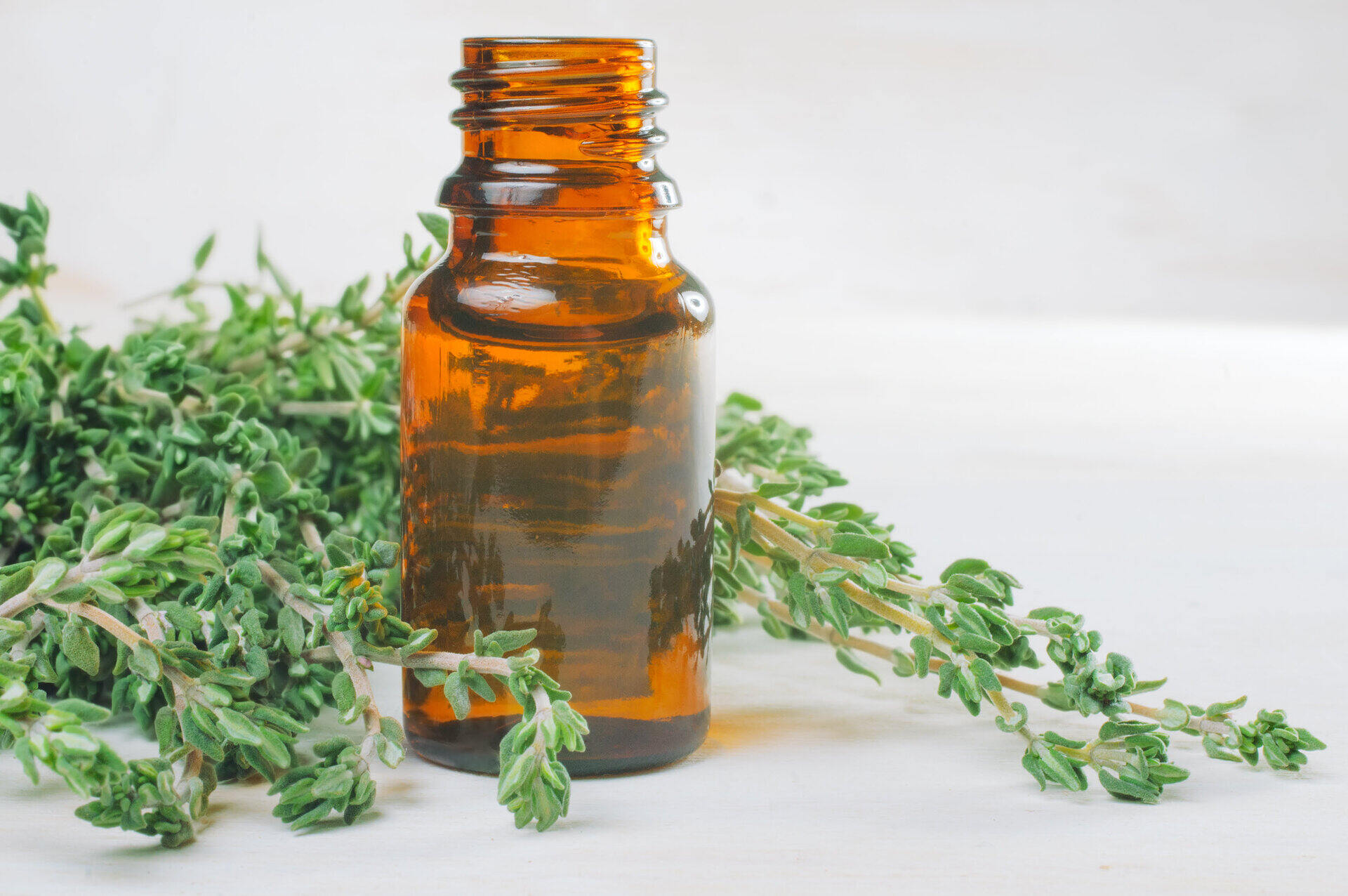


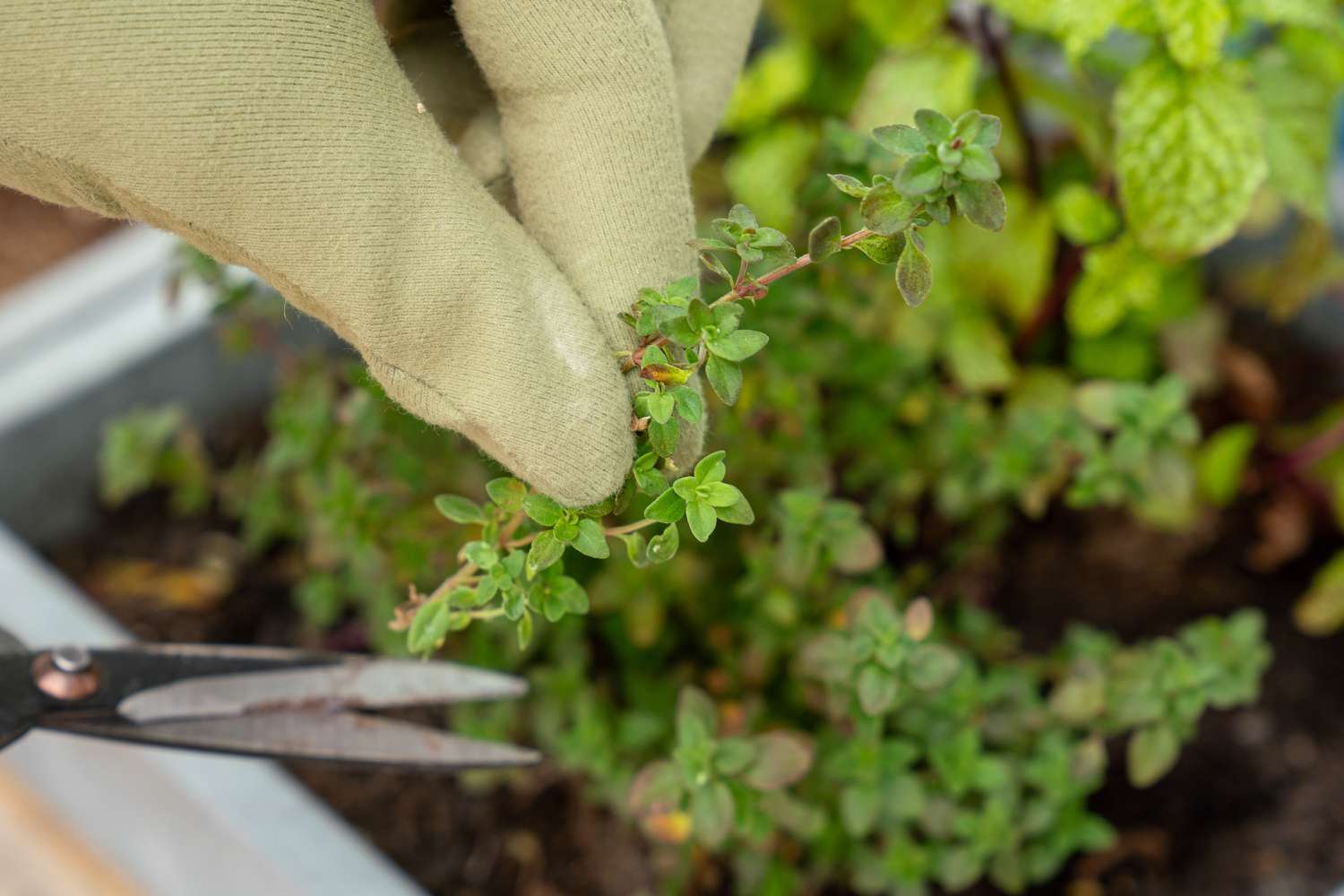

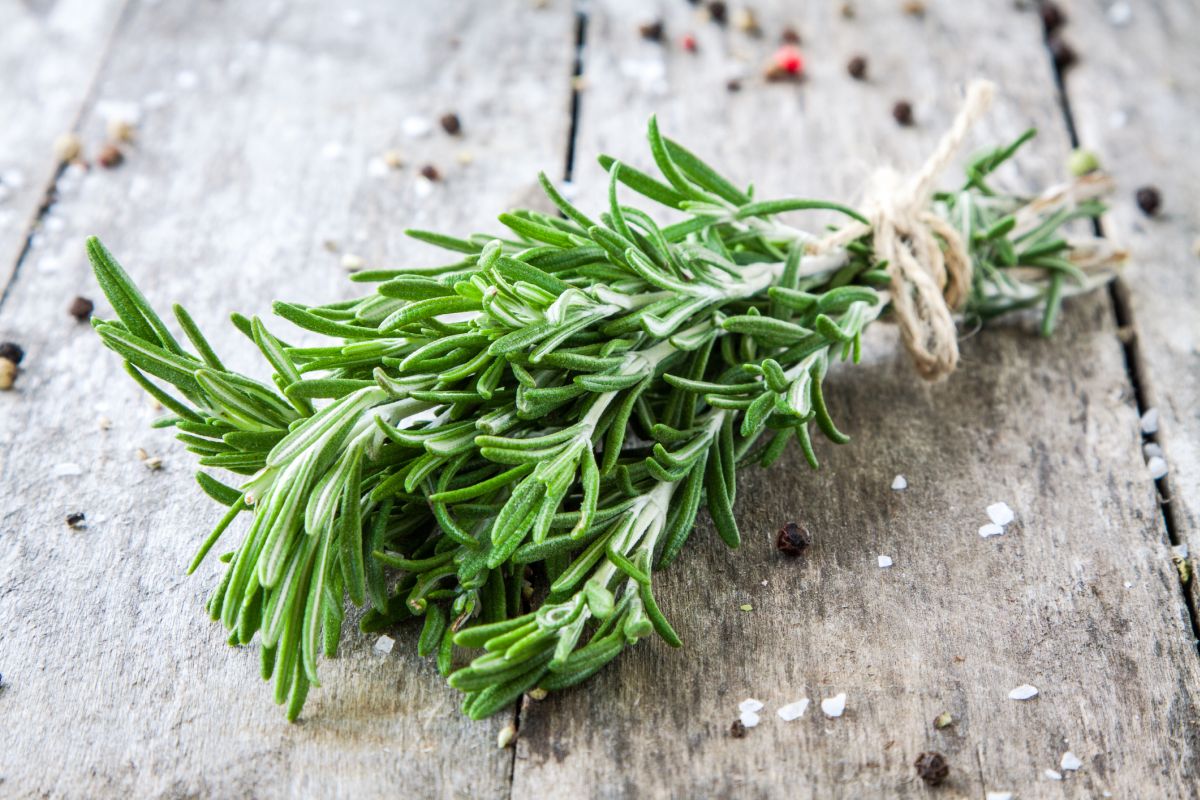
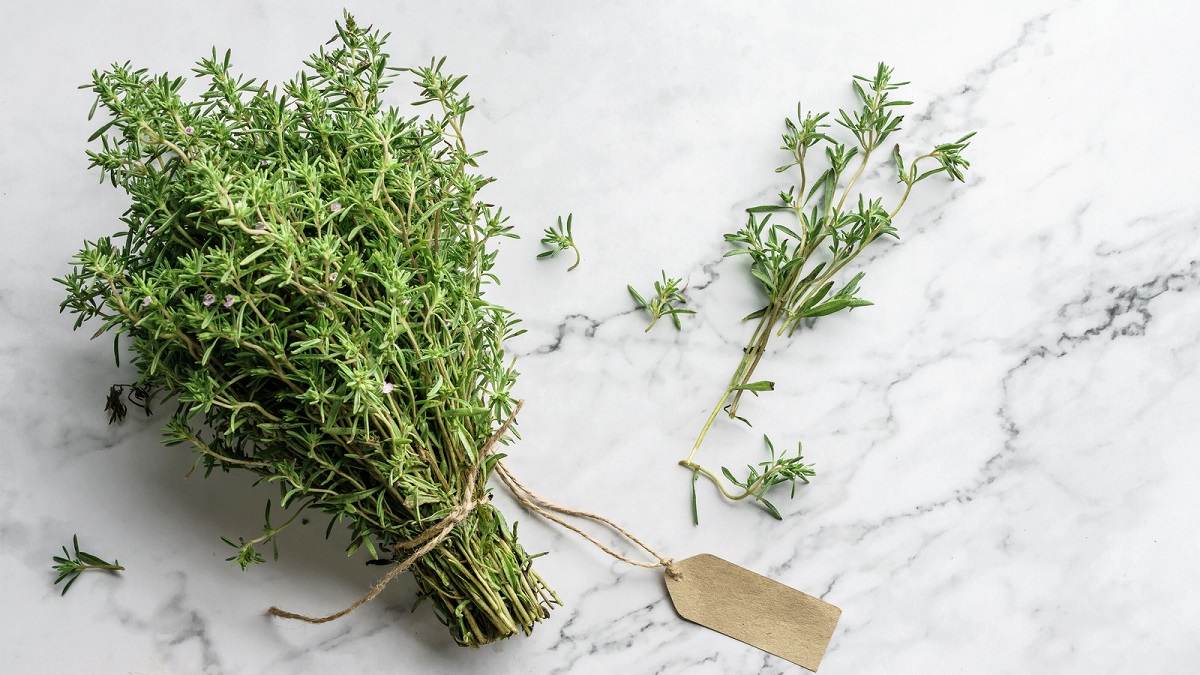

0 thoughts on “How To Use Thyme For Acne”